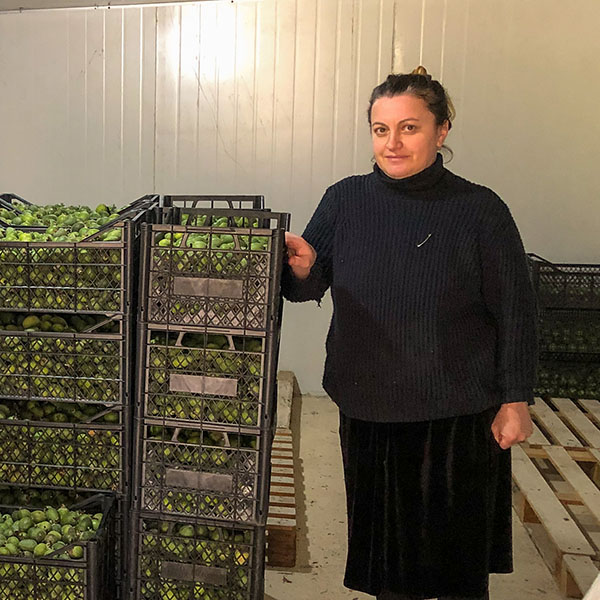Eastern Europe
Whether we’re responding to the fallout of war, supporting families as they access new sources of income, or helping communities use renewable energy technologies, our programs in Eastern Europe share the same mission: to build a world where everyone has food, voice and a safe place to call home.
Through programs in Moldova, Bosnia and Serbia, we are providing safe spaces for refugees from all around the world. In Moldova, our response focuses on Ukrainian refugees and ensures they have access to education, psychosocial support and basic needs like food and shelter.
One of the most marginalized groups of people across Europe is the Roma. Roma children are often born into a cycle of poverty and inequality that can follow them for their whole lives. Through programs for Roma women and children, we are helping them break this cycle of generational poverty.
In many rural communities in Eastern Europe, families face various kinds of poverty through food insecurity and energy limitations. To combat these challenges we are inviting communities to participate in our Renewable Energy program where they can learn how to use alternative energies. Participants can also receive livestock to help overcome hunger and diversify their income. Through these programs, families are installing greenhouses, starting their own businesses and building brighter futures.
Together, we will move closer and closer to accomplishing our goal of building a better world for all.
Catching Up With an Old Friend in Georgia

“I live in the village of Kheta in the western part of Georgia,” says Tamar Chumburidze. “I am a mother of three and have two grandchildren. We all live together and our main source of income is a small plot of land where we grow [bay] laurel trees, vegetables and fruit for sale. The income we make is hardly enough to make ends meet and cover basic needs.”
Tamar’s story is all too common in her remote, rural community. Many of her neighbors, especially women, struggle to find jobs or earn a living. There’s also another challenge for families here that compounds everything else: a lack of energy sources. Every day, women and children in particular have to try to find firewood or other biomass that they can burn to heat their homes and cook meals. It’s simply too expensive to try to use gas or electricity to meet even these basic needs.
Explore related work
Latest Updates
Caring Hearts, Enduring Spirits: Stories of Strength from Ukraine
Since Russia’s full-scale invasion of Ukraine in 2022, CWS has expanded its support to reach some of the country’s most vulnerable populations. Through the Caring Hearts project, we’re partnering with local organizations to provide essential aid and emotional support to older adults living in remote villages of Odesa Oblast. On February 24, 2022, the world watched in horror as Russia …
Carrying Hope Across Borders: Diana’s Story of Strength, Survival and New Beginnings
When war forced Diana and her family to flee their home in Ukraine, they arrived in Moldova with little but hope for a safe future. Thanks to the CWS winterization project and the resilience of a mother’s love, they’re building a new life—one step and season at a time. A Family Uprooted by War When war broke out in Ukraine, …
Sewn With Hope: Elvira’s Path from Ukraine to Serbia
Forced to flee Ukraine in 2022, Elvira rebuilt her life in Serbia through creativity, community and determination—turning her sewing skills into a source of purpose, income and empowerment for herself and other refugee women. With support from CWS and partners, her family is now charting a path toward independence and stability. Stitch by Stitch: Reclaiming Purpose Through Creativity Before the …
